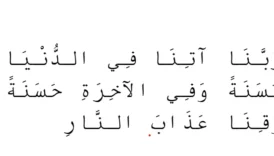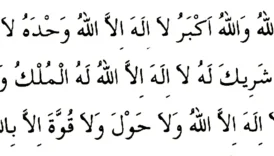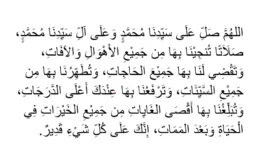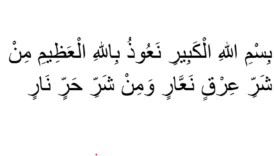Amenerrasulü: Its Virtues and Secrets
Amenerrasulü
Amenerrasulü refers to the final two verses (285 and 286) of Surah al-Baqarah in the Holy Qur’an. Although these verses are not a separate surah, they are famously known by this name among Muslims. It is narrated that they were revealed to the Prophet Muhammad (peace be upon him) during the Night of Ascension (Laylat al-Mi‘raj).
According to Islamic tradition, these two verses carry special significance due to their profound meaning and the blessings they bestow. The Prophet (peace be upon him) mentioned that these verses came from a hidden treasure beneath the Divine Throne.
(Reference: Dârimî, Faḍā’il al-Qur’ān 14)
Surah al-Baqarah, which contains Amenerrasulü, is the second chapter of the Qur’an by order in the Mushaf and the 87th by order of revelation. It was revealed in Madinah and is the longest surah in the Qur’an, filled with various rulings, stories, and theological principles. Throughout this chapter, many verses have specific contexts of revelation; however, these final two verses have collectively drawn special attention from scholars and believers alike.
(Reference: Muslim, Īmān 279)
Its Writing
The final two verses of Surah al-Baqarah are often written in calligraphic form, displayed in mosques and homes for blessings. Although originally found in the standard Arabic text of the Qur’an, they have been a popular subject of Islamic art as well, frequently illuminated in decorative manuscripts or framed as wall hangings.
Its Recitation
Arabic Text (On Its Own Line)
أَمَنَ الرَّسُولُ بِمَا أُنزِلَ إِلَيْهِ مِنْ رَبِّهِ وَالْمُؤْمِنُونَ ۚ
كُلٌّ آمَنَ بِاللَّهِ وَمَلَائِكَتِهِ وَكُتُبِهِ وَرُسُلِهِ ۚ
لَا نُفَرِّقُ بَيْنَ أَحَدٍ مِنْ رُسُلِهِ ۚ
وَقَالُوا سَمِعْنَا وَأَطَعْنَا ۖ
غُفْرَانَكَ رَبَّنَا وَإِلَيْكَ الْمَصِيرُ.
لَا يُكَلِّفُ اللَّهُ نَفْسًا إِلَّا وُسْعَهَا ۚ
لَهَا مَا كَسَبَتْ وَعَلَيْهَا مَا اكْتَسَبَتْ ۗ
رَبَّنَا لَا تُؤَاخِذْنَا إِنْ نَسِينَا أَوْ أَخْطَأْنَا ۚ
رَبَّنَا وَلَا تَحْمِلْ عَلَيْنَا إِصْرًا
كَمَا حَمَلْتَهُ عَلَى الَّذِينَ مِنْ قَبْلِنَا ۚ
رَبَّنَا وَلَا تُحَمِّلْنَا مَا لَا طَاقَةَ لَنَا بِهِ ۖ
وَاعْفُ عَنَّا وَاغْفِرْ لَنَا وَارْحَمْنَا ۖ
أَنْتَ مَوْلَانَا فَانْصُرْنَا عَلَى الْقَوْمِ الْكَافِرِينَ
Transliteration (On Its Own Line)
Amana’r-rasūlu bimā unzila ilayhi min rabbihi wa’l-mu’minūn.
Kullun āmana bi-llāhi wa malā’ikatihi wa kutubihi wa rusulihi;
lā nufarriqu bayna aḥadin min rusulihi;
wa qālū sami’nā wa aṭa’nā, ghufrānaka rabbanā wa ilayka’l-maṣīr.
Lā yukallifu-llāhu nafsan illā wus‘ahā;
lahā mā kasabat wa ‘alayhā mā iktasabat.
Rabbanā lā tu’ākhidnā in nasīnā aw akhṭa’nā;
rabbanā wa lā taḥmil ‘alaynā iṣran kamā ḥamaltahu ‘alā-l-ladhīna min qablinā;
rabbanā wa lā tuḥammilnā mā lā ṭāqata lanā bih,
wa’fu ‘annā, wa’ghfir lanā, wa’rḥamnā.
Anta mawlānā fa’nṣurnā ‘alā’l-qawmi’l-kāfirīn.
Its Meaning (English Translation)
“The Messenger has believed in what was revealed to him from his Lord, and so have the believers. They all have believed in Allah, His angels, His books, and His messengers, saying, ‘We make no distinction between any of His messengers.’ They say, ‘We hear and we obey. (We seek) Your forgiveness, our Lord, and to You is the [final] destination.’
Allah does not charge a soul except [with that within] its capacity. It will have [the consequence of] what good it has gained, and it will bear [the consequence of] what [evil] it has earned. (They say): ‘Our Lord, do not impose blame upon us if we have forgotten or erred. Our Lord, and lay not upon us a burden like that which You laid upon those before us. Our Lord, and burden us not with that which we have no ability to bear. And pardon us; and forgive us; and have mercy upon us. You are our Protector, so give us victory over the disbelieving people.’”
Virtues and Benefits
- Protection from All Evil “Whoever recites the last two verses of Surah al-Baqarah at night, they will suffice him and protect him from evil.”
(References: Bukhārī, Faḍā’il al-Qur’ān 10; Muslim, Musāfirīn 255)
- A Treasure Beneath the Divine Throne
Ebu Umamah (may Allah be pleased with him) reported that the Prophet (peace be upon him) said: “Four things were revealed from under the Throne: Sūrat al-Fātiḥah, Āyatul Kursī, the final two verses of Sūrat al-Baqarah (Amenerrasulü), and Sūrat al-Kawthar.”
(Reference: Al-Muttaqī, Kanz al-‘Ummāl, 1/558)
- Keeps Satan Away
It is reported that if these two verses are recited in a house for three consecutive nights, Satan will not come near that house.
(Reference: Tirmidhī, Thawābu’l-Qur’ān 4)
- A Gift of the Ascension (Mi‘raj)
During the Prophet’s (peace be upon him) Ascension, he was gifted three things: the five daily prayers, the final two verses of Surah al-Baqarah, and the promise that those among his followers who do not associate partners with Allah will have their major sins forgiven.
(Reference: Muslim, Īmān 279)
- They Are Mercy, Supplication, and Qur’an
According to a narration: “Allah ended Surah al-Baqarah with two verses which came from beneath the Throne. Learn them, teach them to your women and children, for indeed they are mercy, a supplication, and Qur’an.”
(Reference: Dârimî, Faḍā’il al-Qur’ān 14)
Methods of Recitation
- Begin with Ta‘awwudh and Basmalah: Start by saying, “A‘ūdhu billāhi minash-shayṭānir-rajīm, Bismillāhir-Raḥmānir-Raḥīm” (I seek refuge in Allah from the accursed Satan. In the Name of Allah, the Most Compassionate, the Most Merciful).
- Repetition in Blessed Numbers: Many scholars recommend reciting Amenerrasulü in specific blessed numbers such as 7, 11, 21, 41, 100, or 313 times without interruption.
- Intensive Recitation (313 Times): Reciting these verses 313 times in one night is considered highly effective against spiritual or physical adversities.
- Written and Dissolved in Water: Some traditions mention writing these verses on a surface, then immersing them in water. Drinking this water is believed to bring spiritual and physical healing.
- Nighttime Recitation: Reciting these verses 313 times after the ‘Ishā’ prayer for 1, 3, or 7 consecutive nights is commonly advised. It is said to help one benefit from the light, grace, and blessings contained within them.
Sources
- Muslim, Īmān 279
- Bukhārī, Faḍā’il al-Qur’ān 10; Muslim, Musāfirīn 255
- Al-Muttaqī, Kanz al-‘Ummāl, 1/558
- Tirmidhī, Thawābu’l-Qur’ān 4
- Dârimî, Faḍā’il al-Qur’ān 14
This American-style overview maintains the essence of the Turkish original while presenting the content in a form accessible to an English-speaking audience.





